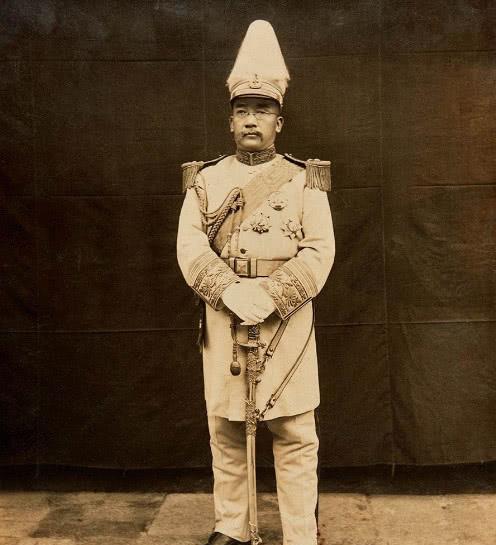He ruled Guizhou for more than a decade, but was ousted by his nephew, and the happiest was the Nationalist government
After the outbreak of the Xinhai Revolution, the Guizhou region was remote, so the local warlords had always held the military and political power, and the leader of these warlords was called Liu Xianshi, who ruled Guizhou for more than ten years, which was originally calm and quiet, who knew that he was ousted from power by his nephew.
Wang Wenhua was the nephew of the warlord Liu Xianshi, and it should be said that Liu Xianshi was able to become the king of Guizhou in the end, thanks to the merits of his nephew. When Liu Xianshi led his troops into Guizhou, Guiyang was already under the control of the revolutionary party and had formed the "Great Han Guizhou Military Government".

Liu Xianshi did not advance or retreat at this time, and in the end it was his nephew Wang Wenhua who negotiated with zhang Bailin, the leader of the revolutionaries, and finally Liu Xianshi could enter the city of Guizhou. However, after Liu Xianshi entered the city, he immediately led Tang Jiyao to Guizhou to clean up the revolutionaries, giving him the opportunity to grasp the military and political power in Guizhou.
Liu Xianshi also did not forget the credit of his nephew Wang Wenhua, who let Wang Wenhua grasp some military power, and Wang Wenhua slowly climbed higher and higher in the military circles of Guizhou. Liu Xianshi did the right thing, because he was Wang Wenhua's uncle, and it was right to promote his nephew, but he did not see Wang Wenhua's big ambition.
Then the Patriotic War broke out, Wang Wenhua led the army to fight a great victory, and his position in the army became higher and higher, becoming a leading figure in the military circles of Guizhou. He found that the overall quality of the Qian army was very low, and in order to no longer rely on the Warlords of the Dian Clan, Wang Wenhua began to establish a military school and entrusted He Yingqin with heavy responsibilities.
After the graduates of the Japanese Army Non-Commissioned Officer School, the Baoding Army Officer School, and the Yunnan Daowutang graduates all came to Guizhou, the new warlords became more and more powerful. However, there is also a huge contradiction between the old-school warlords and the emerging warlords.
Wang Wenhua's ambitions are getting bigger and bigger, and he wants to monopolize power, so there is also a contradiction with his uncle Liu Xianshi, and the two sides have a contest behind their backs. In the contest, Liu Xianshi's means were basically slow and half a beat, and finally Wang Wenhua gradually held the military, political, and economic power in his hands.
Liu Xianshi had only now discovered that it was already very difficult to bring down his nephew Wang Wenhua. Wang Wenhua used various means to co-opt and coerce, and some of Liu Xianshi's henchmen were plotted against, some escaped, and some committed suicide, and Liu Xianshi was already alone.
In desperation, Liu Xianshi dispatched all his forces to use force to attack Wang Wenhua. However, he was never his nephew's opponent, Wang Wenhua had already seen through his thoughts, and it was only a matter of time before Liu Xianshi was ousted. However, at this time, Wang Wenhua took the initiative to retreat.
Wang Wenhua did not want to become a disloyal and unjust person who "committed crimes below and forced his uncle with his nephew", so he handed over the troops to his subordinates, and he stayed in the hospital in Shanghai to recuperate. In Wang Wenhua's absence, his troops succeeded in ousting Liu Xianshi from power, but he also failed to return as the "King of Guizhou".
His subordinates, like him, have great ambitions. On his way back to Guizhou, Wang Wenhua was assassinated by his subordinates. This warlord scuffle stemming from the contradiction between nephews and uncles is finally over, the Xingyi warlords have begun to decline, and the emerging warlords have weakened a lot because of their strength in struggle, and the happiest should be the National Government.